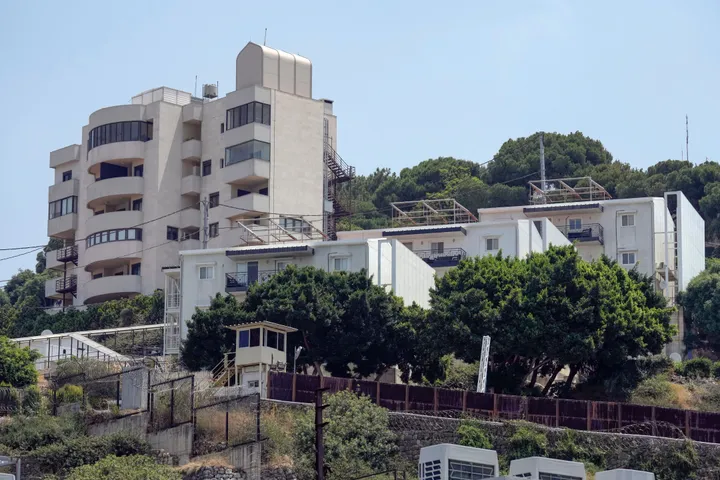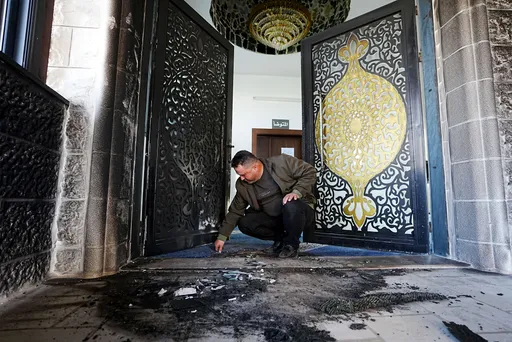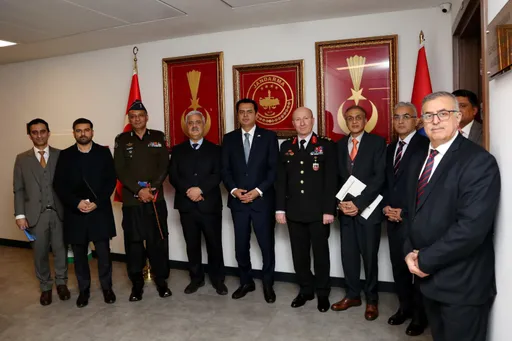As ministers of defence and senior diplomats from around the globe gathered in Bahrain this weekend for the Manama Dialogue, one common theme in the various bilateral meetings and discussions was the issue of Iranian influence in regional affairs, and concerns of Tehran's sponsorship of international terrorism.
Notable however, was the stark contravening viewpoint towards Iran from the Iraqi delegation led by Foreign Minister Ibrahim Jaafari and national security advisor Falah Fayyad.
During an extraordinary exchange with Saudi Prince Faisal al Turki at the opening panel, Jaafari took pains to come to the defence of Iran and totally denied that Iran has ever supported terror activity. Not to be outdone, Falah Fayyad likewise attempted to paint Iran as a force for stability in the region.
The contrast with other officials from the Gulf was stark. Two senior Iraqi officials didn't bother to even conceal their unequivocal support for a country that many in the region fault for fuelling instability and the proliferation of extremist militias loyal to Iran’s supreme leader Khamenei could be chalked up to diplomatic niceties - but both men have a long personal history with Qasem Soleimani – the commander of the Iranian Revolutionary Guards who has funded, trained, and armed over a hundred thousand Iraqi shia militia fighters.
The Iraqi prime minister on Saturday declared the official end of the campaign to defeat Daesh in Iraq. The Iraqi army alongside the Shia militia Hashd al Shaabi claim to have cleared the final pockets of territory controlled by Daesh after nearly three years of heavy and protracted fighting.
In his speech declaring the end of the anti-Daesh campaign, President Abadi said that the victory against the terror group was due to Iraq’s “unity and determination”.
But as the fight against Daesh winds down in earnest, unity seems to be in short supply. Iraq is as divided as its ever been and the Iranian funded militias that played an important role in defeating Daesh have signalled that they are there to stay – going so far as declaring their participation in the Iraqi political process. All signs indicate that these forces are not going to relinquish their weapons even as the threat of Daesh diminishes markedly.
Iraq’s Sunni community remains marginalised and tensions with the Kurdish region are simmering, almost ready to boil over.
Iraqi politicians like Vice President Ayad Allawi who continues to try to push against the trend of sectarianism in Iraq, do not have access to a militia; leaving them at a major disadvantage.
So, now that the fight against Daesh in Iraq has supposedly come to a denouement, do the so-called ‘Popular Mobilization Units’ pose a unique threat to Iraq’s unity?
In a speech given at the Manama Dialogue, former commanding general of US forces in Iraq, General Petraeus took a sanguine outlook on the matter.
“Hashd Shaabi Shia militias are trying to gain seats in parliament, but we must remember that they were formed in response to an Ayatollah Sistani fatwa. This is a difficult and sensitive issue.”
But Ayatollah Sistani is ailing and his death may open up more pro-Iranian government Ayatollahs to exert their influence over these militias and give cover to their activities.
The competition for influence and power in the Arabian Gulf and Levant was evident in the halls of the Manama Dialogue.
Bahrain’s foreign minister Sheikh Khaled raised his government’s fears that Hezbollah operates well outside the borders of Lebanon, “Hezbollah in Lebanon is now a political potent force that answers to the Supreme Leader of Iran. Hezbollah has wreaked havoc in Iraq and continues to train operatives to conduct terror attacks in Bahrain and Kuwait. We can't stand by and allow Hezbollah to have its way. The world must recognize Hezbollah for what it truly is: a terror organization.”
Further, the issue of the status of Jerusalem notably hung over the Manama Dialogue. Though it remained unclear what – if any – real tangible actions would be taken by Arab leaders beyond the status quo rhetoric in response to President Trump’s decision to recognise Jerusalem as the capital of Israel.
It was apt that many major Western defence delegations were also present at the Manama Dialogue. The US has long viewed itself as the preeminent security guarantor in the Arab Gulf, but that role may steadily be declining as Russia expands its footprint and domestic production and technology capabilities in the region exponentially rise over the years.
Indeed the geopolitical divisions in the region have proven to be a financial boon to major arms suppliers. A UK-based defence manufacturer just recently announced a multi-billion dollar deal with Qatar, while other competitors remain eager to leverage the Gulf rivalry to sell their latest ware.
Interestingly, the anti missile air defence system produced and manned by a major US defence contractor was recently found by a New York Times report to have completely failed in intercepting the Houthi missile that targeted the Riyadh airport.
The main takeaway from the Manama Dialogue is that the region today is as complex and turbulent as it ever was and major divisions across political, religious, and cultural lines continue to run through the Middle East and colour and shape policies of competing power blocs and nation-state spheres of influence.
The 'Great Game' for influence in the region will remain a staple in the rivalry between the Saudi-led coalition and Tehran. True intra-regional dialogue is in short supply these days.
Will rule by militia become the norm in the Arab world? Will intra-Arab political infighting and familial dynasties continue to be factors impacting – and supplanting – governance and development? Is constructive diplomacy possible between a resurgent Iran and the new leadership in Riyadh?
While there were many thoughtful solutions discussed amongst the internationally diverse participants at the Manama Dialogue, at the end of the day many thought leaders I've spoken with in the region fear that it will be just defence and military contracts worth billions of dollars that will be signed here.
Transformative ideas for reform will remain anathema to international summits and conferences sponsored by those who have the most to lose by any challenge to the ossified status quo in the Arab world.























